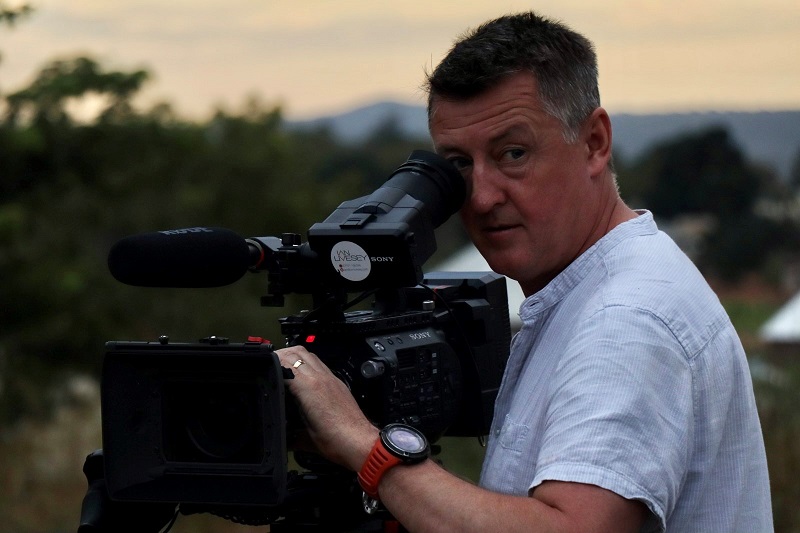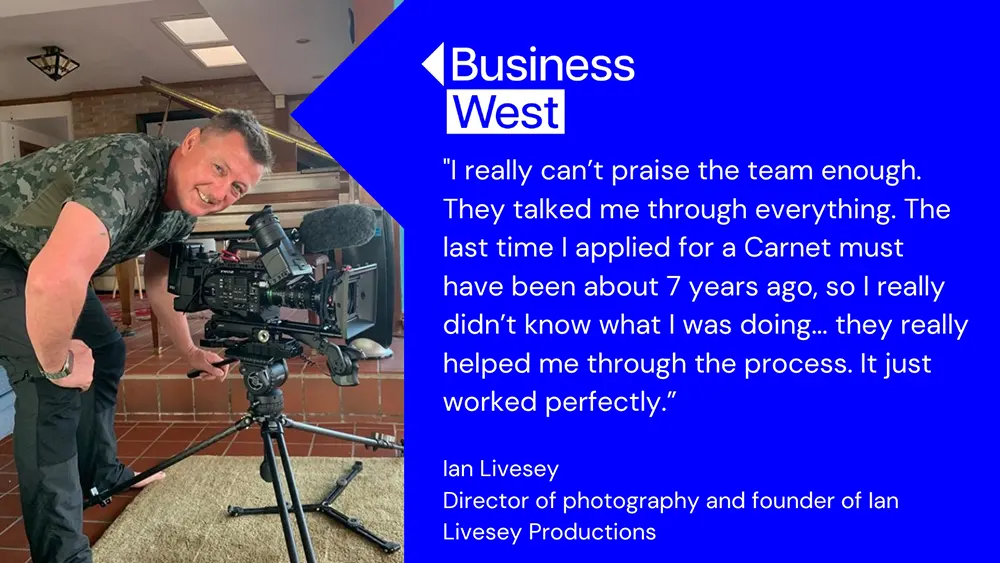
An ATA Carnet acts as a 'passport for goods’, allowing for duty and tax-free temporary movement of goods between countries. ATA Carnets are frequently used by film and TV production companies that need to take their equipment out of the UK and into the EU and other countries to shoot abroad. The use of ATA Carnets means that film crews can travel with ease and avoid customs delays and charges.
We spoke to Ian Livesey, director of photography and founder of Ian Livesey Productions. He has worked in the film and TV industry for 25 years and has done everything from music videos and short films to independent dramas and large-scale documentaries. He has worked with the likes of big-time celebrities, including Daniel Craig, David Jason, Maggie Smith, and the whole cast and crew of Bridget Jones’s Diary. He now works primarily as a documentary cameraman, which requires him to travel abroad.
Most recently, Ian used an ATA Carnet to take his cameras and filming equipment to the US for a shoot. When he returned to the UK, he immediately booked another job which required him to go back to the US and onwards to Türkiye. He used the same Carnet for both trips but had to get it re-bonded before heading back out.
How did you find the experience of applying for your ATA Carnet?
I used Business West’s export documentation platform, eCert, to apply for my Carnet.
At the time, I had lots on my plate, as I had to apply for a lot of Visas and other documents for this job. The problem with the Visa application websites is that they time-out and crash. You start to fill a form in, and it crashes, and you just think ‘Oh my God – all that work has just disappeared.’
But the eCert portal saves your progress and shows you which stages you must work through to complete your application. I think it’s really reassuring to see which stage you are at and know that your work isn’t just going to disappear.
Why did you need to re-bond your ATA Carnet?
I came to Business West in May last year. I had been asked to shoot a big project about women’s education around the world. We went to the US.
I took the equipment and the Carnet, went to the US, and came back again. But then I got another job straight afterwards, which required me to go back out to the US and also to Türkiye. Because the Carnet was still valid, I was able to re-bond it for longer in the US and add Türkiye to the destination list. It worked perfectly. I’m just about to post it back to Business West to be discharged.
How did you find working with the Business West team?
I really can’t praise the team enough. They talked me through everything. The last time I applied for a Carnet must have been about 7 years ago, so I really didn’t know what I was doing. It’s one of those documents that you can never be sure about, and they really helped me through the process. It just worked perfectly.
Do you have any advice for other film and TV production companies that need to take their equipment abroad for a shoot?
The main advice I would give is to prepare your general list on an Excel spreadsheet and keep a copy of it for yourself.
Don’t be lazy about the list either. Make sure that you provide serial numbers wherever you can. The more information you put on your Carnet list, the less the customs officers are going to probe you. So be thorough.
When entering the US, the officers will pick a random item from your list and cross reference its serial number. For example, last time I was there, they asked to see my camera, and I showed it to them straight away. They could see that the serial number on the list married up perfectly with the serial number on the camera itself.
If you aren’t clear, they have every right to take every piece of equipment out and check it all, which would just be a nightmare. So, the more time you put into writing a detailed list, the less time you will spend going through customs.
Finally, we asked Ian whether he would apply for an ATA Carnet at Business West again.
Oh, absolutely! If I end up travelling again, Business West would be my very first choice for ATA Carnets.
